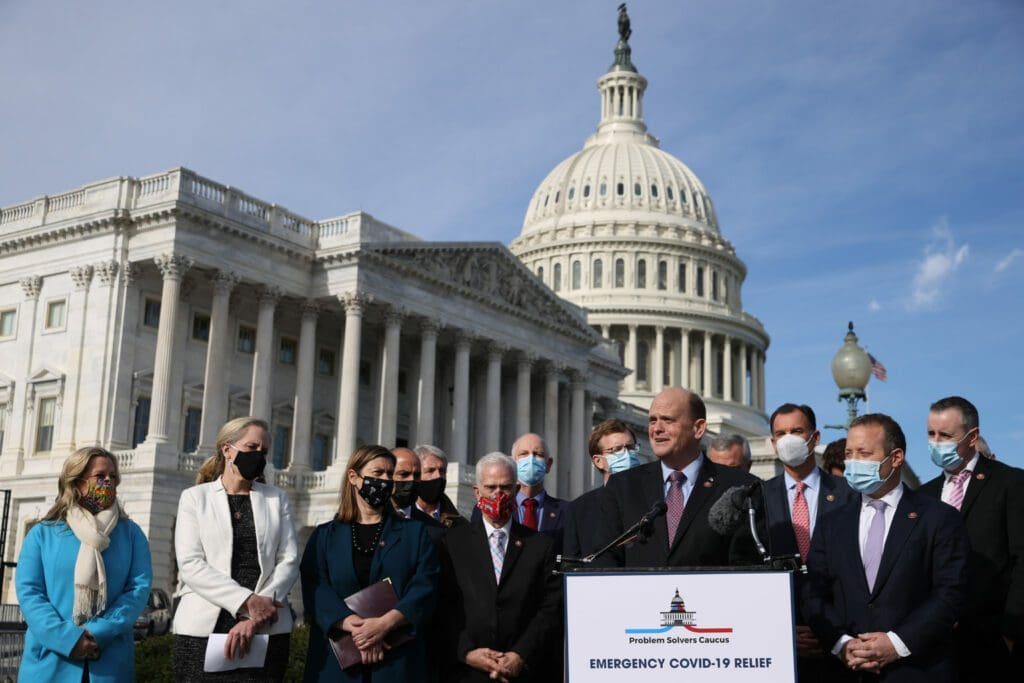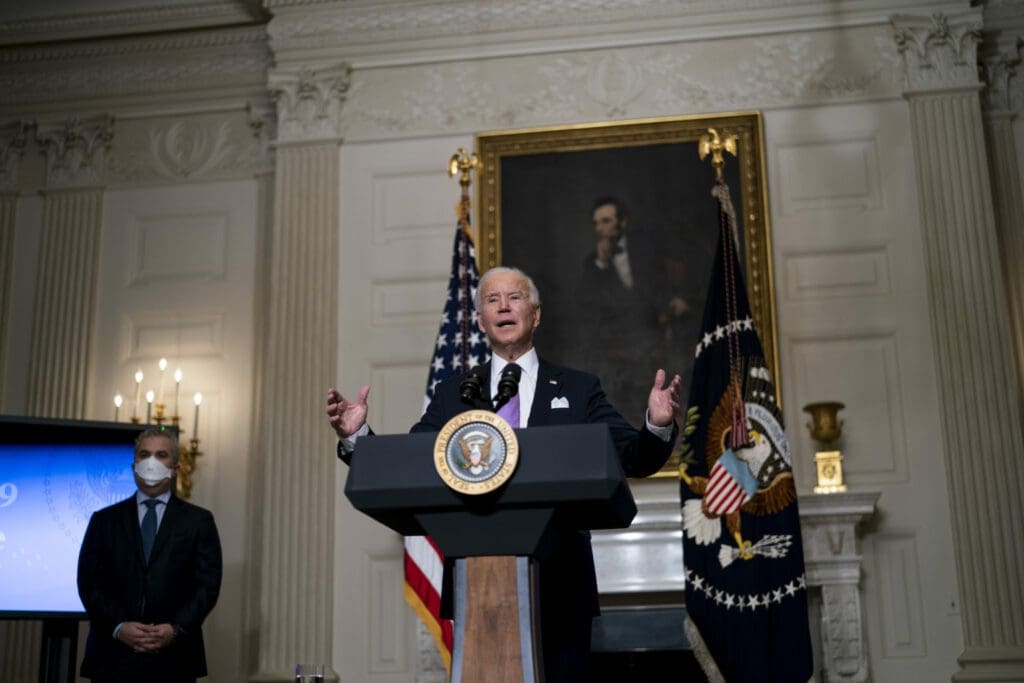- Even though President Joe Biden’s coronavirus relief plan has been met with skepticism from some Republicans, more and more GOP lawmakers have backed another round of higher stimulus payments that his plan includes.
- “Given the nature of COVID, given the nature of the impacts and financial struggles, people are hurting and I think people need [direct payments] as soon as possible,” said Rep. Tom Reed, a New York Republican who co-chairs the bipartisan Problem Solvers Caucus and has been in close talks with Biden officials.
- While some have decried stimulus checks as “socialism,” their implementation was could become the “conservative approach” to economic recovery, said Greg Nasif, a spokesman for Humanity Forward. “Something so efficient … and something without bureaucracy, without paperwork or applications, I think that’s more American.”
Even though President Joe Biden’s coronavirus relief plan has been met with skepticism from some Republicans, more and more GOP lawmakers have backed another round of higher stimulus payments that his plan includes.
Biden’s $1.9 trillion plan includes $1,400 cash payments to Americans earning less than $75,000, and while it is all but certain to change as Congress debates it, most Republicans have objected to the overall size of the bill rather than the checks it allots.
“I do support those checks,” said Rep. Tom Reed, a New York Republican who co-chairs the bipartisan Problem Solvers Caucus and has been in close talks with Biden officials and senators from both parties.
“Though I think that there’s broad support that the bill may need to be a little bit more targeted … given the nature of COVID, given the nature of the impacts and financial struggles, people are hurting and I think people need [direct payments] as soon as possible and [they] are the best way to get that relief to people,” Reed told the Daily Caller News Foundation, adding that while it was “too early to judge” whether a $1.9 trillion package was too large, he would support stand-alone bills providing cash payments or relating to coronavirus vaccine distribution.
Reed, whose caucus was instrumental in crafting the eventual $900 billion relief package that passed in December, was one of 11 Republican co-sponsors of the Coronavirus Assistance for American Families Act, which would have given $1,000 payments to Americans earning less than $75,000.
Despite the bill’s bipartisan support, it was never signed into law.

After the $900 billion package passed, granting $600 checks to Americans earning under $75,000, former President Donald Trump urged Congress to pass a standalone bill authorizing $2,000 checks. While the bill passed the House – with 44 Republicans joining the vast majority of Democrats – it was effectively killed by Senate Republicans even though some, including Missouri Sen. Josh Hawley and Florida Sen. Marco Rubio, had supported it.
“Rubio and [South Carolina Sen. Lindsey] Graham are on the winning side of this issue,” Greg Nasif, a spokesperson for Humanity Forward, a non-profit organization pushing for additional stimulus checks to help Americans and jumpstart the economy, told the Daily Caller News Foundation.
“[Two-thousand dollar checks] are the fastest, most efficient way to help people who are struggling,” he said.
They also appear to be resoundingly popular among Americans. Nearly 80% of Americans supported the standalone $2,000 bill, according to the left-leaning Data for Progress, while a Business Insider survey found that 76% of Americans supported stimulus payments greater than $1,000.
Most Republicans who oppose another round of stimulus payments have fallen back on the $27.5 trillion national debt, arguing that the country can only avoid addressing it for so long without facing serious consequences.
“Since I arrived in Congress in 2011, federal debt has almost doubled, from nearly $15 trillion to more than $27.5 trillion. The passage of $900 billion in additional relief, combined with a $1 trillion projected deficit for 2021, will increase federal debt to over $29 trillion,” said Wisconsin Sen. Ron Johnson in a USA Today op-ed.
“Unfortunately, few in Congress seem to care.”
Nasif, however, argued that stimulus payments and the economic benefits they could generate were cheaper in the long run than doing nothing.
“If we were to wait and do nothing, and the economy gets worse, that’s going to cost us more in the long run. Direct cash relief goes to everyone, it helps everyone … and it immediately circulates back into the economy,” he said.
His argument has been echoed by both officials in Biden’s administration and the president himself, who have argued that not passing his bill could imperil the nation’s economic recovery.
“The very health of our nation is at stake,” Biden said on Jan. 14 when he first announced his recovery plan. “[It] does not come cheaply, but failure to do so will cost us dearly.”

Nasif also argued that despite some who decried stimulus checks as “socialism,” their implementation was could become the “conservative approach” to economic recovery.
“Something so efficient … and something without bureaucracy, without paperwork or applications, I think that’s more American. That invokes less government and less involvement in how folks get their money,” he said. “It trusts the American worker, the American family, to know what to do with their money.”
Nasif’s argument was echoed by none other than Reed himself, who said that direct payments give Americans “the tools to help themselves.”
“When we talk about direct checks, there are a lot of positives from a conservative point of view,” he said. “Why are we building bureaucracies upon bureaucracies of public assistance programs when we say we trust people to make the best decisions as to what they need?”
_____
To see original article please visit: https://dailycaller.com/2021/01/28/americans-covid-19-stimulus-checks-republicans/
The post Americans Want COVID-19 Stimulus Checks — Will Republicans Get On Board? appeared first on Basic Income Today.
This post was originally published on Basic Income Today.